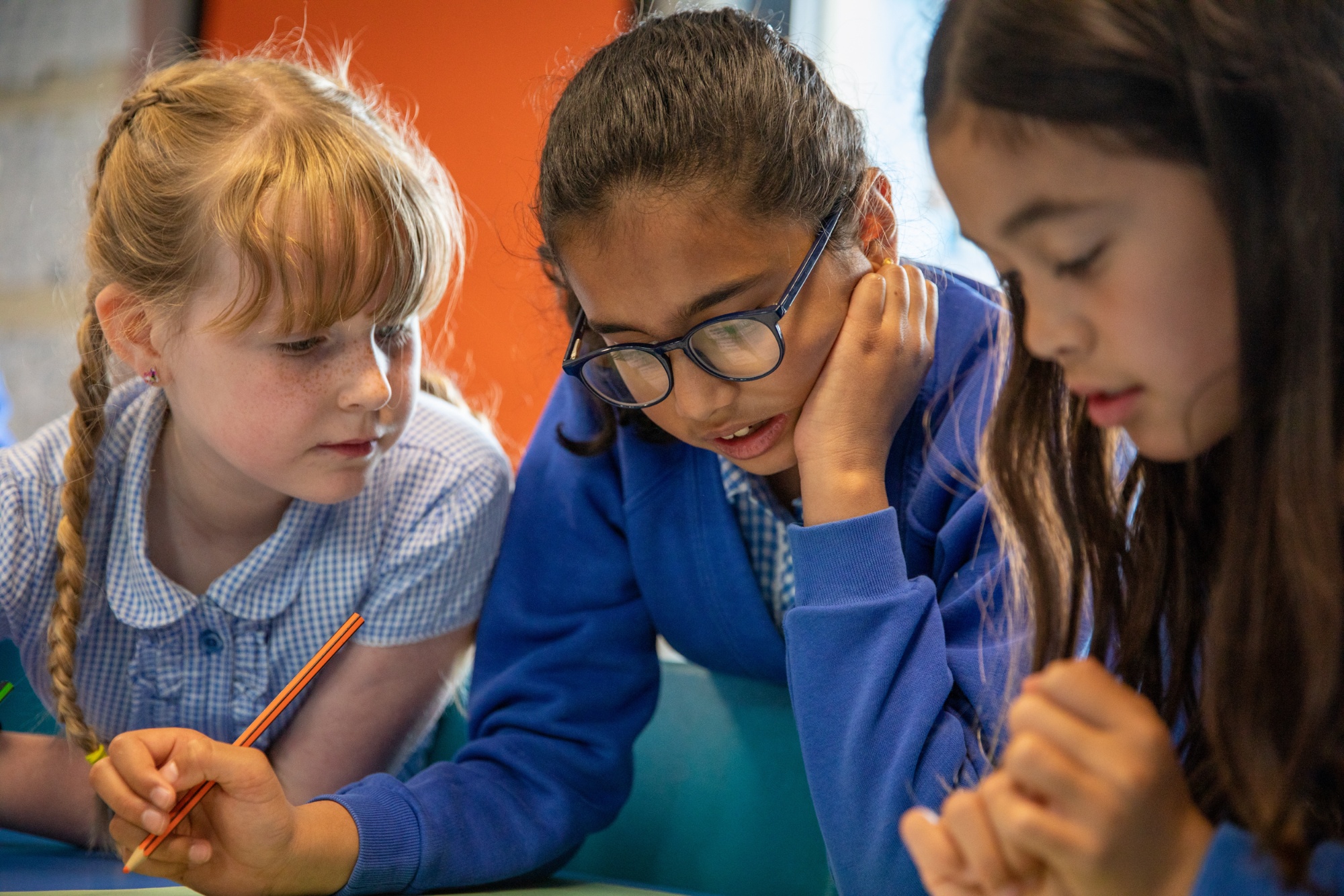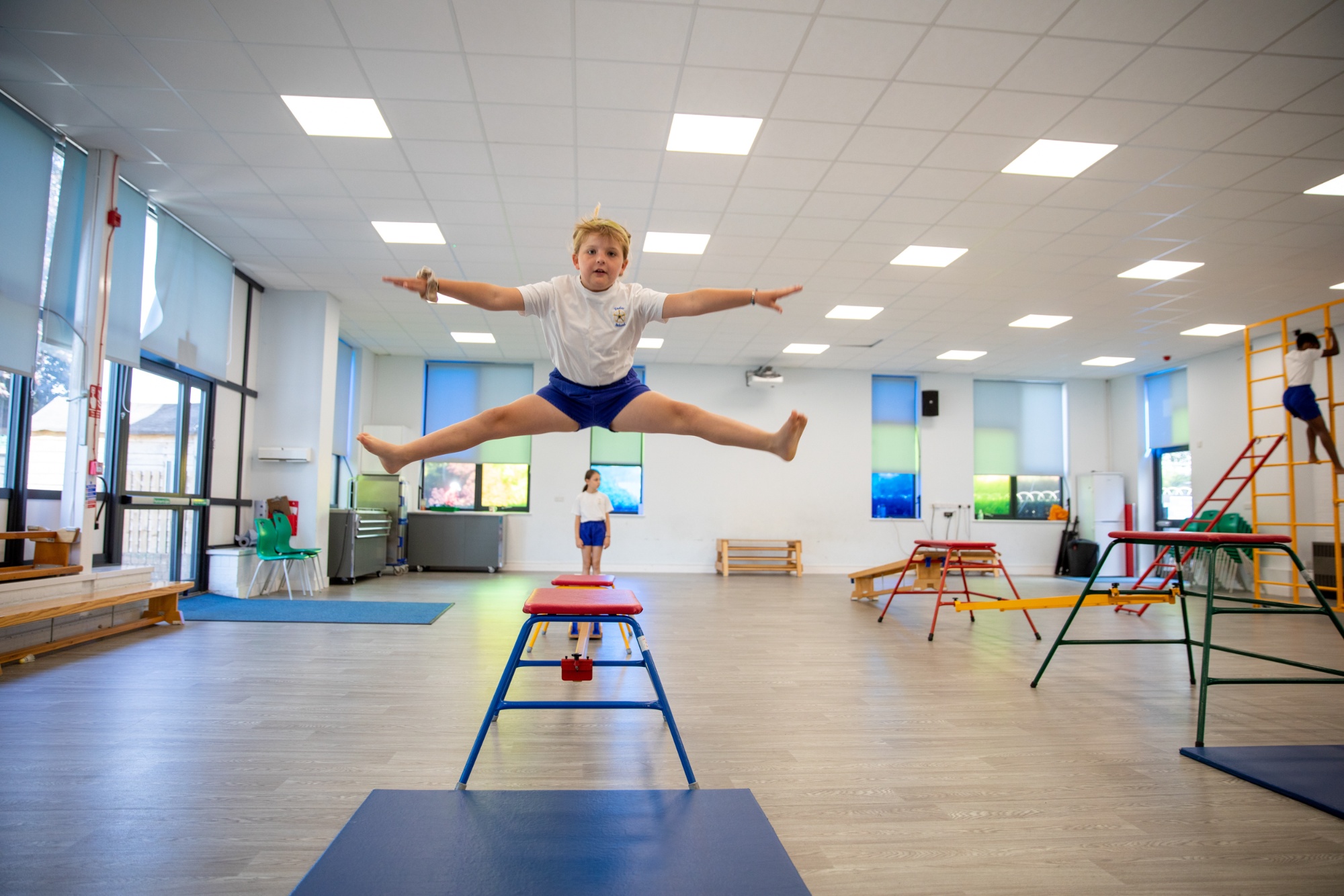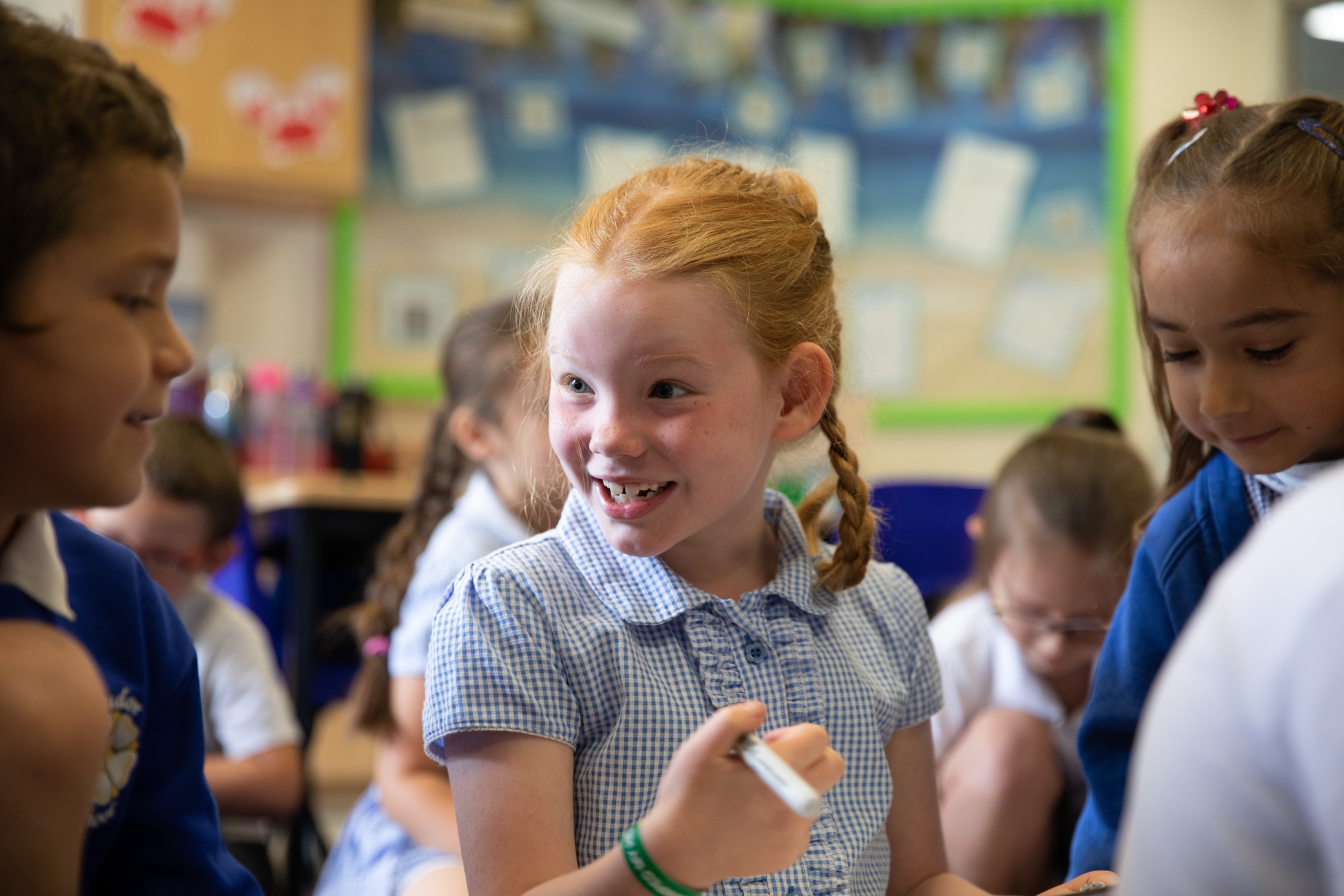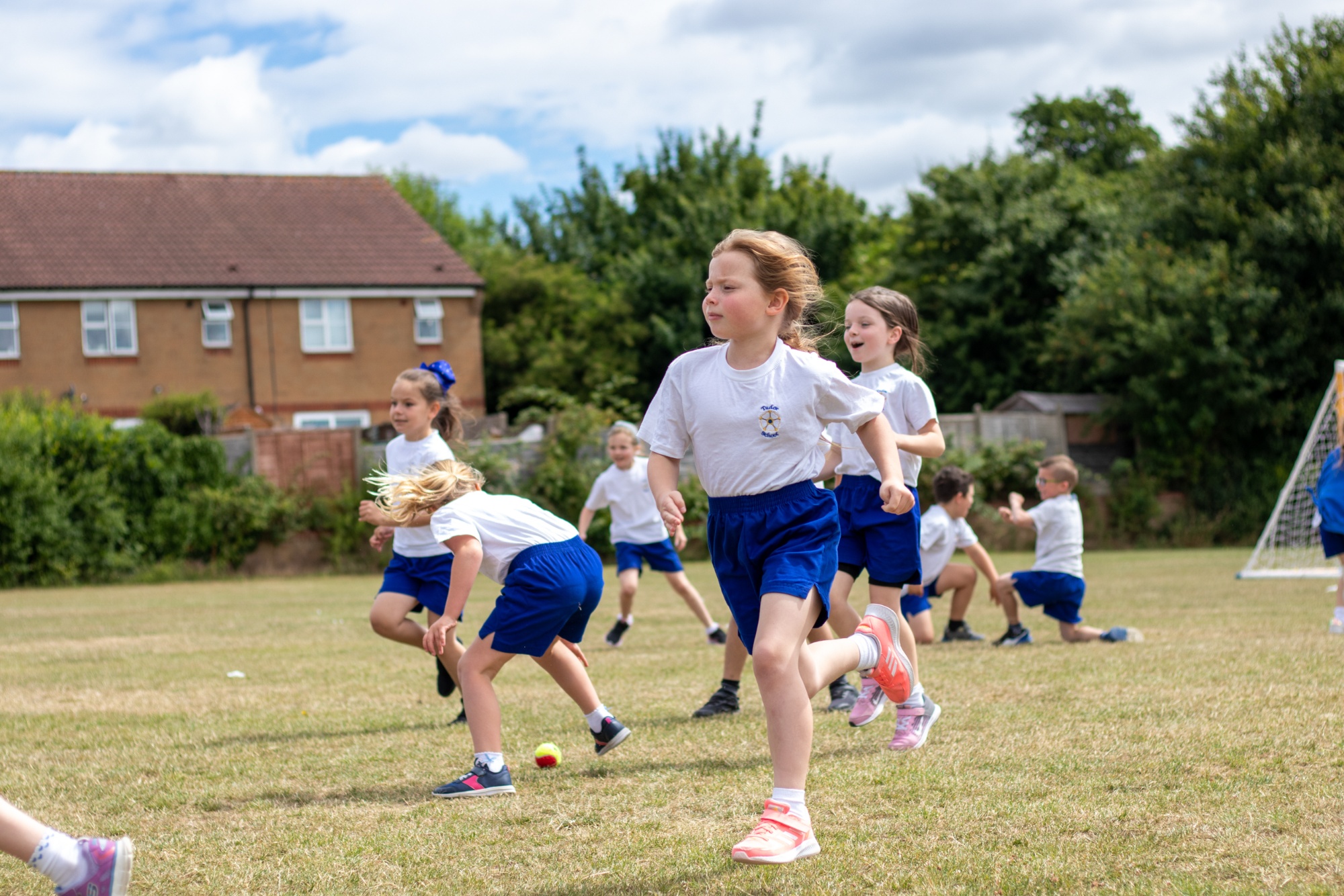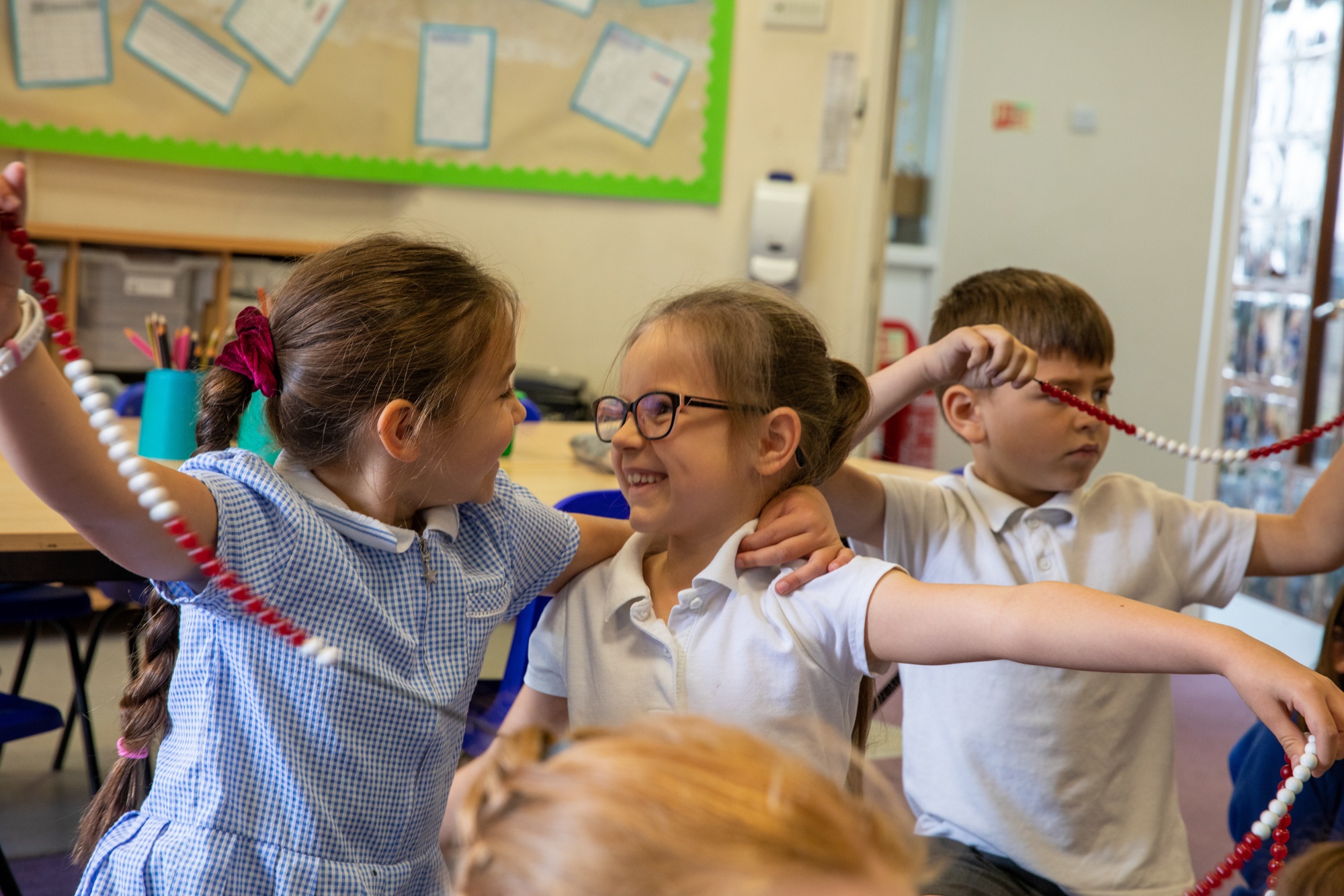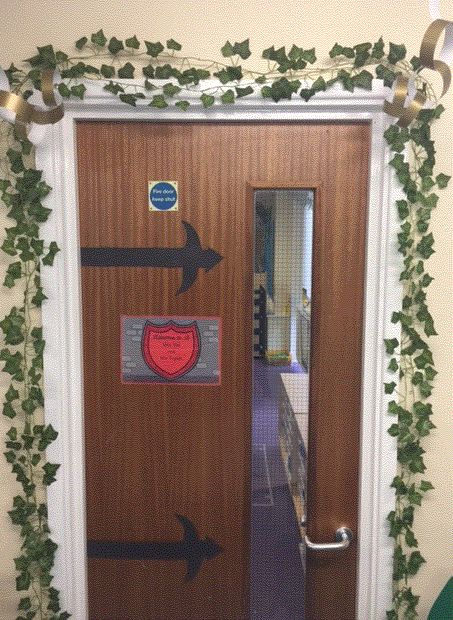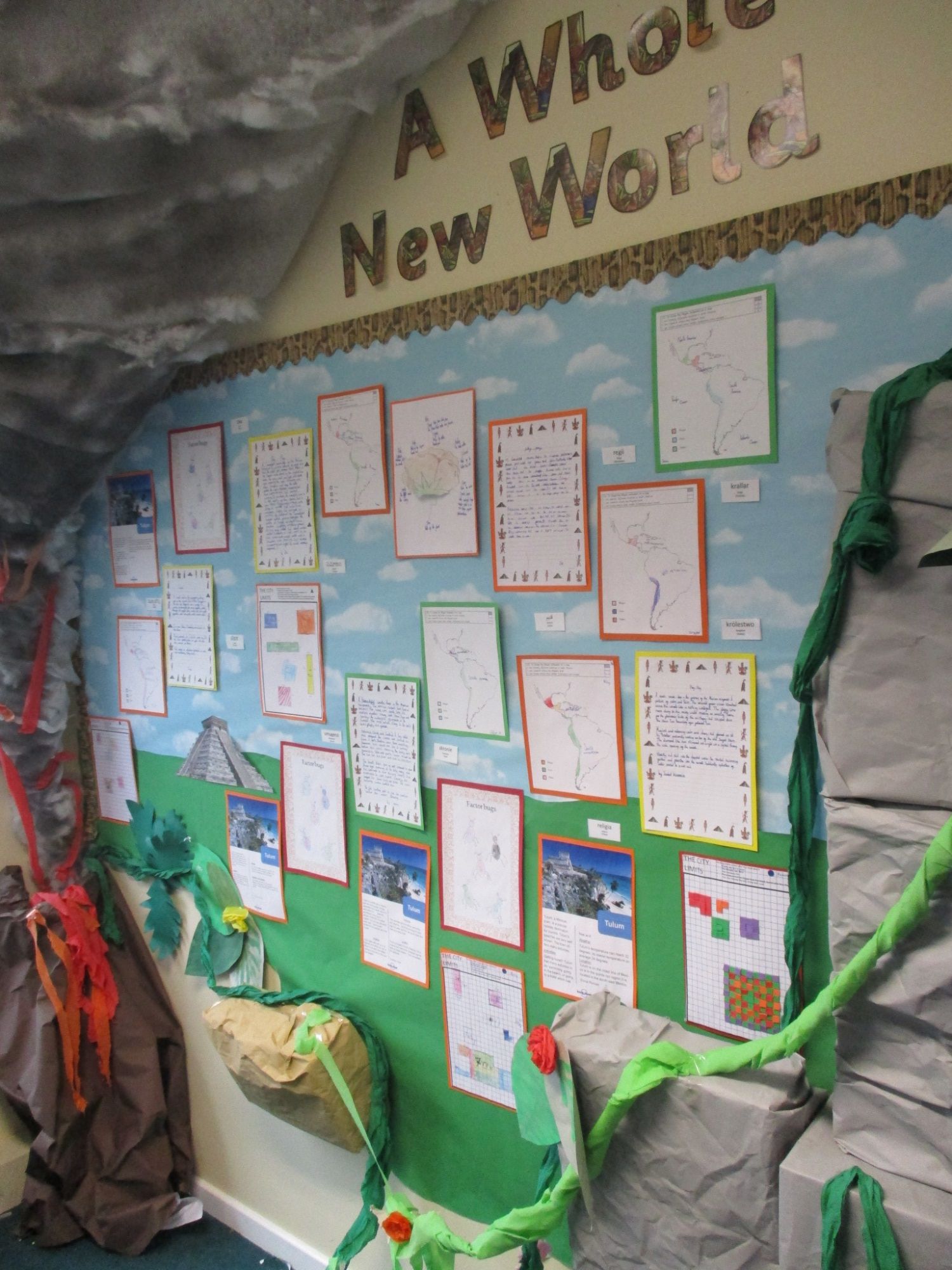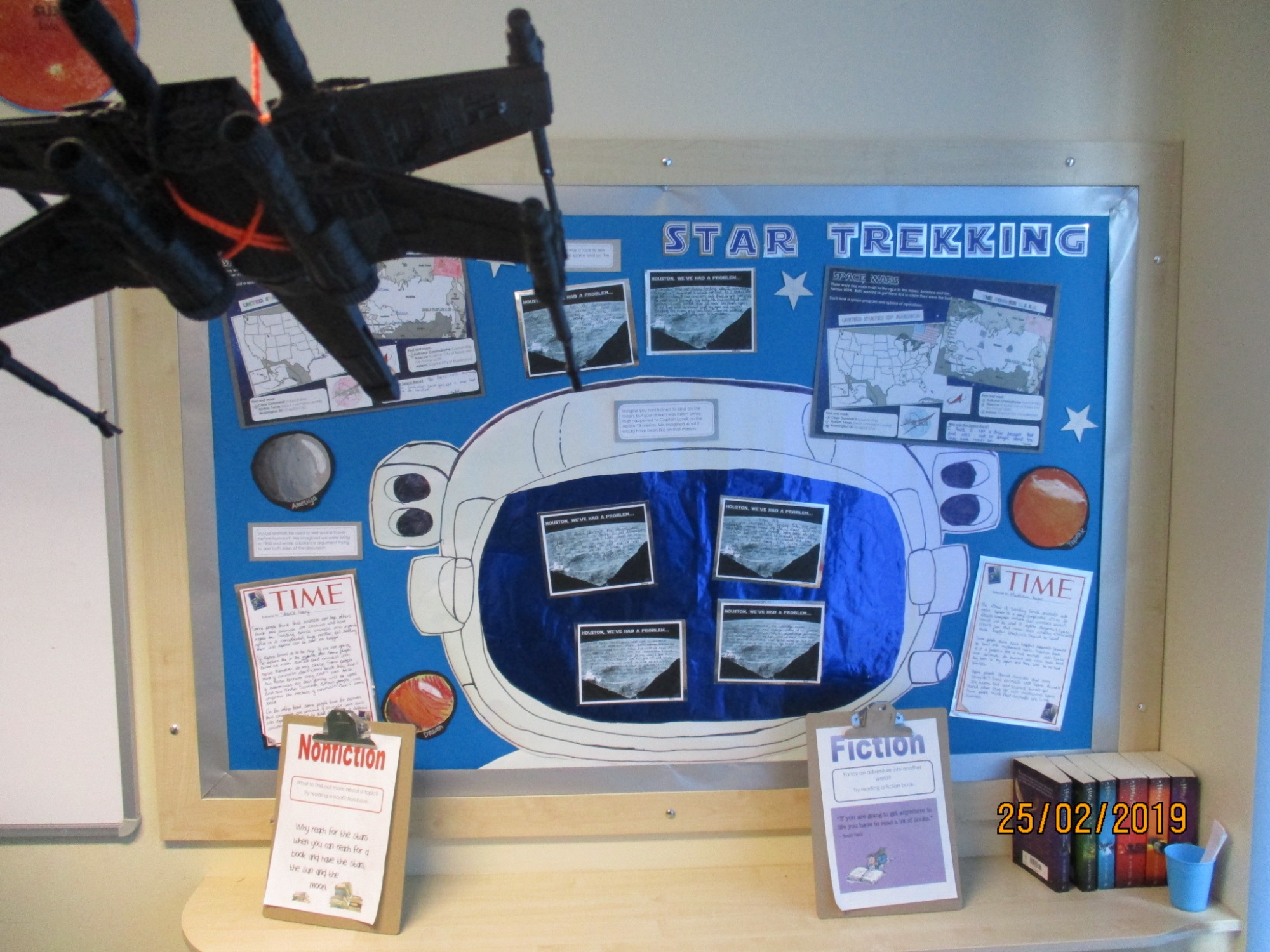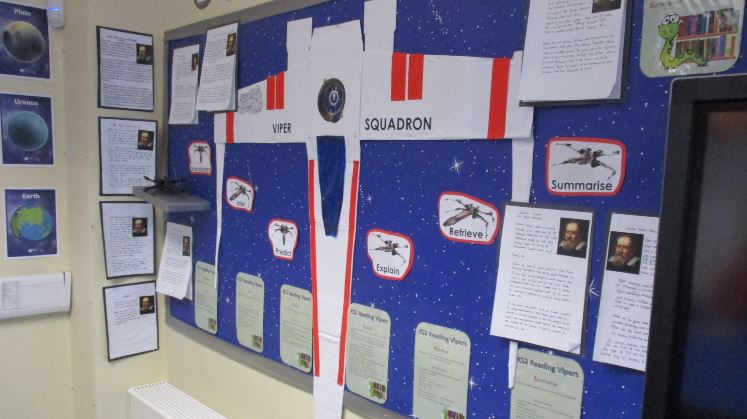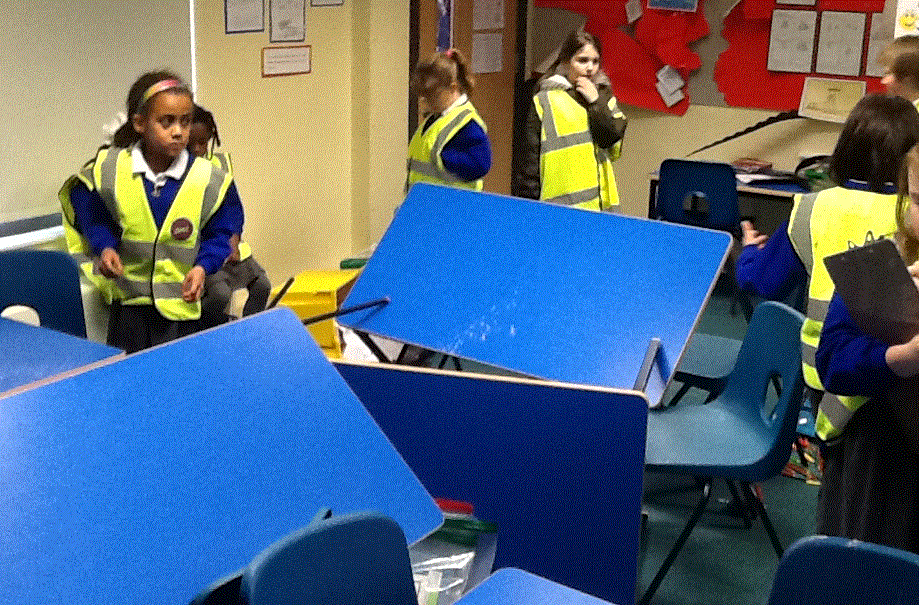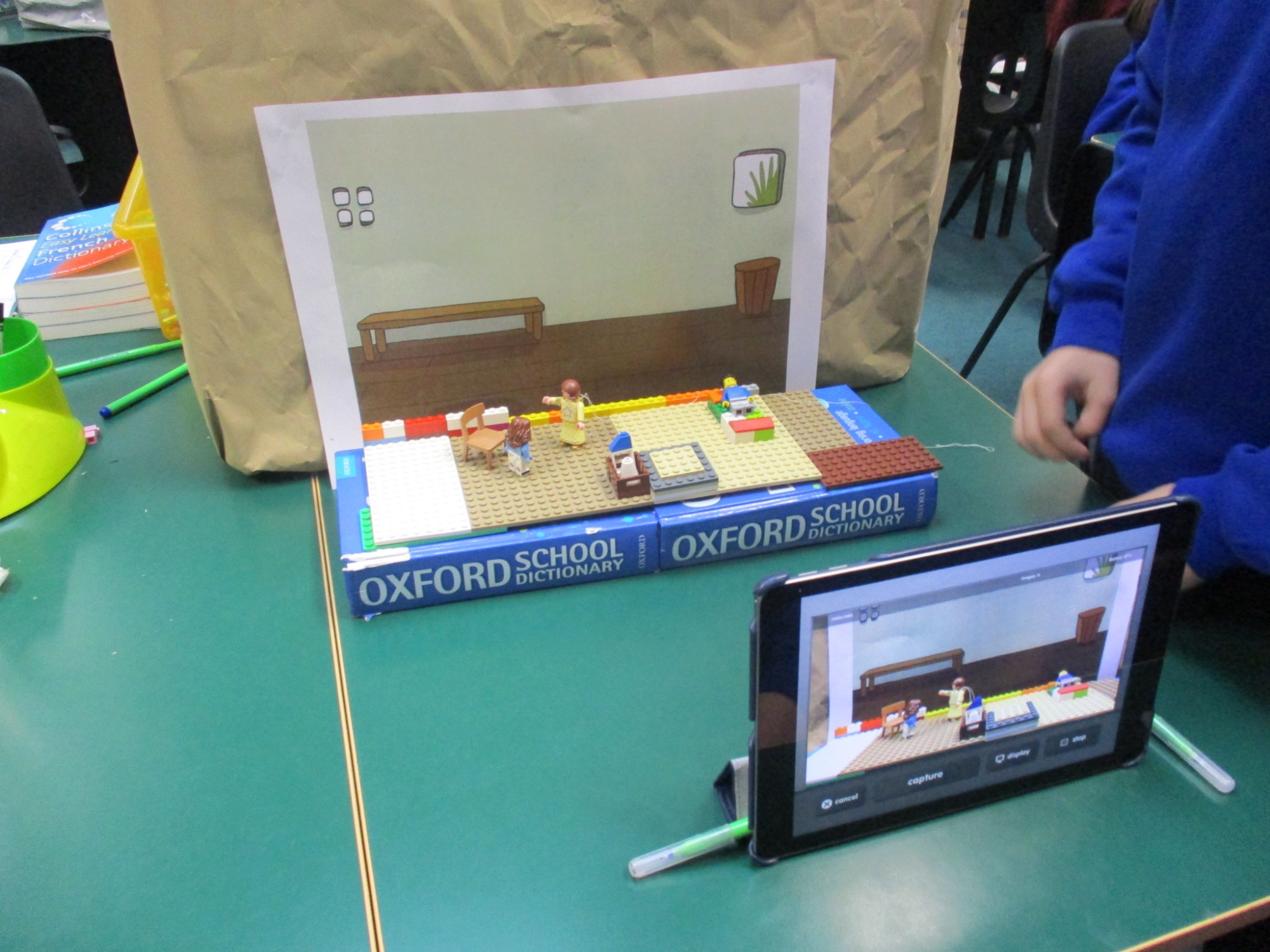We are very proud of the curriculum that we have designed for the children of Tudor Primary. When I became headteacher, I wanted to introduce a curriculum that would excite, enable and inspire the children to achieve well.
'Leaders have a shared, ambitious vision for the curriculum. They want it to inspire pupils and enable them to achieve well. The curriculum starts in early years, so the youngest pupils are well prepared for the next stage of their education.' (Ofsted, December 2022)
This part of the website will provide a flavour of how we think creatively to present high quality learning experiences and prepare children for a successful life in modern Britain. Do also look at the links on this page for additional bespoke Tudor documents that share our research and practices in the delivery of our curriculum and what it looks like in different age groups.
Whilst we firmly believe that our creative thematic curriculum 'as a whole' excites and inspires the children at Tudor, we are determined to ensure that the individual subjects of the national curriculum are able to shine on their own too.
Rather than share 'general' policies, we thought it would be useful (and much better) to share exactly what sort of things make learning at Tudor fun, stimulating, memorable and more. Feel free to look at the bespoke Tudor documents below that share how the teaching team deliver the key skills that helps the children become historians or geographers or (in fact) whatever they want to be!
The Tudor Primary Thematic Curriculum
Implementation:
'Come on into our Tudor curriculum...'
Our cross-curricular approach places children’s learning within a strong context that has both relevance and coherence. It generates real excitement for learning.
The alternative approach (unfortunately still found in a number of schools),where many different topics are covered within a range of subjects every term, often leads to wasted learning opportunities and very much a ‘silo’ approach to the curriculum – things do not naturally join up and therefore coherence is lost. Usually excitement, creativity and flair are also lost.
We have been using a whole school map that details how the curriculum will be delivered in each class, each term in a planned and balanced approach.
Subject leaders are confident and knowledgeable. They have designed a bespoke curriculum for each subject. It breaks complex ideas down into manageable chunks. Pupils follow a sequence of learning that helps them know more and remember more. (Ofsted, December 2022)
This updated map (following review by the leadership team and teaching team) covers all aspects of the new NC.
By having a single theme to learning for each term, greater coherence and relevance to children’s everyday life is achieved. We made the decision to target the range of curricular subjects each term so that there is a ‘focus’ for that period and to have all topics / projects either science, history or geography based.
There are some vital elements that underpin this themed approach so that it does not lead to vague or woolly subject teaching. These are:
- Different subjects areas are linked together by a single theme (but this link must be strong and not tenuous)
- Some aspects of subjects might not link to a theme so these must be taught as discrete units of study – these are highlighted on the curriculum map (mainly PE, PSHE & C and also RE)
- English & Maths lessons should link strongly to the theme for each term but, again, there may be aspects that require discrete teaching and this needs to be picked up in each teachers individual plans and in the termly overview for each year group
Timetabling
- Each term, each teacher will need to create a timetable to reflect the balance of the curriculum as outlined in the map – the balance of time spent on different subjects should therefore change every term
- When teachers (supported by phase leaders) produce the termly overview for each year group (following the group brainstorm session), they will have to consider the balance of work to be covered within the time available that term. This is a crucial part of the process as cramming in too much will lead to a superficial approach and not covering enough content will lead to children not receiving their full entitlement over the course of the whole year
- The completed termly overview (once fully discussed with the teaching team) should reflect the balance and breadth to the curriculum that we always must strive to achieve. Once completed, this becomes the chief planning tool for all teachers in each class and will prevent learning being taken off at tangents that, by their nature, become self-indulgent
- If, once the term and theme are under way, it is discovered that a planned aspect of the work is no longer relevant or needs adjusting then this can be addressed and amended within phase meetings. So long as the breadth and balance over the term, the year and the phase is maintained.
In addition to the work in exercise books, teachers enable the children to produce high quality work that can be displayed upon classroom and corridor display boards. There is a great deal of emphasis placed on high quality outcomes and children recognise the importance of audience for their work.
Time available for all curriculum subjects per term
Autumn 14 weeks (average)
Curriculum time available each week = 23.75 hours
Term time available = 332.5 hours
Spring 11 weeks (average)
Curriculum time available each week = 23.75 hours
Term time available = 261.25 hours
Summer 14 weeks (average)
Curriculum time available each week = 23.75 hours
Term time available = 332.5 hours
However, some years there may be a very long autumn term which will result in a shorter summer term – again, planning ahead in year groups is vital so that all children receive their full curriculum entitlement.
Breadth and balance
If a child were to enter our school in the Foundation Stage and stay with us until they leave in Yr6, they would not repeat a themed project / topic at any time, because the curriculum map has been constructed in such a way to prevent this. They will also have been presented with a curriculum that is broad, balanced and very exciting.
British Values Statement
Preparing children for life in modern Britain
The DfE recently reinforced the need to ‘create and enforce a clear and rigorous expectation on all schools to promote the fundamental British values of democracy, the rule of law, individual liberty and mutual respect and tolerance of those with different faiths and beliefs.’
At Tudor Primary School we promote these values through our broad and balanced curriculum and through a wide range of extra-curricular or enrichment activities which, we believe, support the development of the ‘whole child’.
Democracy
Pupils at Tudor are encouraged to voice their opinions and contribute their ideas on the life of the school. Our school council, the Tudor Owls, is democratically elected at the start of each year. It is made up of 2 pupils from each class who gather ideas from their peers and shares them with the council. They meet regularly to discuss a variety of school issues, new initiatives and ways to improve the school plus surrounding community. Pupils are encouraged to voice their attitudes to learning in all subjects as part of the termly self-evaluation cycle of the school and by subject leaders focusing on school development. Parents and staff are surveyed annually and the results are used to inform school improvement planning.
All the children learn about government, democracy and current affairs through regular assemblies and through PSHE lessons.
Rule of Law
Through Assemblies and the school’s PSHE curriculum, children develop an understanding of the law, appropriate to their age and stage of development. Through the study of a range of different time periods in history, pupils are encouraged to see how laws and ways of government have changed.
Pupils are taught explicitly that laws keep us safe and children are encouraged to think about their own and others’ safety in and outside school.
Visits from outside agencies such as the fire service, police force and health and social workers reinforce the children’s understanding of the responsibilities held by various professions in upholding the law, helping them and keeping them safe.
Our Positive Behaviour Policy supports children in their learning about right and wrong and the importance of rules or following a code of conduct. The policy is visible in all areas of the school and consistently applied by staff, with opportunities constantly being sought to praise and reward positive choices. Pupils who demonstrate appropriate behaviour for learning are recognised through a variety of rewards and held up as role models for others. When poor choices are made there is always time for children to reflect and discuss strategies they may use to improve their behaviour and to restore relationships.
Individual Liberty
Tudor pupils learn about freedom of speech and expression, through assemblies and PSHE sessions. They learn to value difference and diversity and a wide range of extra-curricular/enrichment activities enables them to try new things and move out of their comfort zones. There is an active dialogue within classrooms about recognising the feelings surrounding taking on new activities and pupils are supported with a range of responses to these.
Pupils are encouraged to become good citizens and supported to become as independent as possible. They are taught that that everyone has rights, including the right to say ‘no’ when appropriate. They also understand that with rights come responsibilities. This is seen in our Core principles and the use of the child-led ‘3 steps’ when solving disputes and upsets.
At Tudor we encourage children to value the individual liberties they enjoy, by participating in charitable events such as Comic Relief, Children in Need and our own harvest donations, all of which help them to appreciate that there are children locally, nationally and internationally who face a wide range of challenges in their lives. This is also reflected within the PSHE, RE and Geography curriculum, looking at the responsibilities of each of us as citizens of the World to use what we have wisely and to think about our impact on the planet.
Mutual Respect
Respect is one of our ‘Core Principles’ and as such is a cornerstone of our Positive Behaviour Policy. Mutual respect is modelled by all adults at Tudor towards each other and the children, providing pupils with strong role models from whom to learn.
We work closely with our parents in order to achieve consistency in the values promoted at school and at home. Every month parents have access to material to support the value for that month via the school website.
Pupils are encouraged to treat others in the way they would wish to be treated when solving disputes. The use of the ‘3 steps’ by pupils allows them to voice how they are feeling with the clear expectation of listening to each other. It provides a structure that even the youngest pupil can follow when trying to resolve potential conflict.
Tolerance of different faiths and beliefs
RE lessons at Tudor teach the children about the six major religions of the world. Representatives of these faith groups are invited in to allow pupils to ask questions and have further opportunities to learn more about those with a different set of beliefs to their own.
Assemblies contribute to the children’s knowledge and understanding of special events in the religious calendar of all the major religions.
Resources in our classrooms and the school library are carefully chosen to ensure they reflect our diverse community and any cultural or racial stereotypes are challenged at any age.
The children are at the centre of everything we do at Tudor Primary School it is our duty to prepare them for successful lives as adults living in Britain. By promoting British values, we enable children to develop a sense of community and to understand their responsibilities and roles within that community.
Impact:
Ofsted inspectors as well as county advisors continue to praise the way the curriculum is delivered and quite rightly identify it as a strength of this school.
'The curriculum prepares pupils well for life in modern Britain.' (Ofsted)
'Teachers introduce subject-specific vocabulary in every lesson, and pupils routinely use this.' (Ofsted, December 2022)
Pupil voice continues to highlight how much the children are inspired by the curriculum. Key outcomes such as:
'My teachers make lessons interesting'
'I learn lots in lessons'
are just two areas in which pupil voice outcomes achieve the highest gradings. Is this surprising when the best way to find out about the effects of earthquakes is when we do this:
Other important points about the curriculum at Tudor:
- It is important that computing is used as a tool within other subject areas in addition to being a discrete part of the curriculum (Switched-On Computing introduced recently!)
- Opportunities to utilise the theme for the term within children’s writing is vital so that they can see far more relevance in their writing tasks
- We look for opportunities to put maths into real life contexts by utilising the theme for the term – it engages children well and increases the opportunities for children to use problem solving and reasoning (see other maths documentation- it is an area of high innovation in the school!)
- Enquiry skills are a focus e.g. geography & history- children are enabled to be a historian, to be a geographer
- Each class timetable changes each term to reflect the different focus as highlighted in the curriculum map
- ‘Discrete’ units of study are identified where there is not a strong link to the theme for the term
So what can all this look like in different year groups?
Visit the class blog for each page. This is where you will receive regular updates about daily life in that year group.



